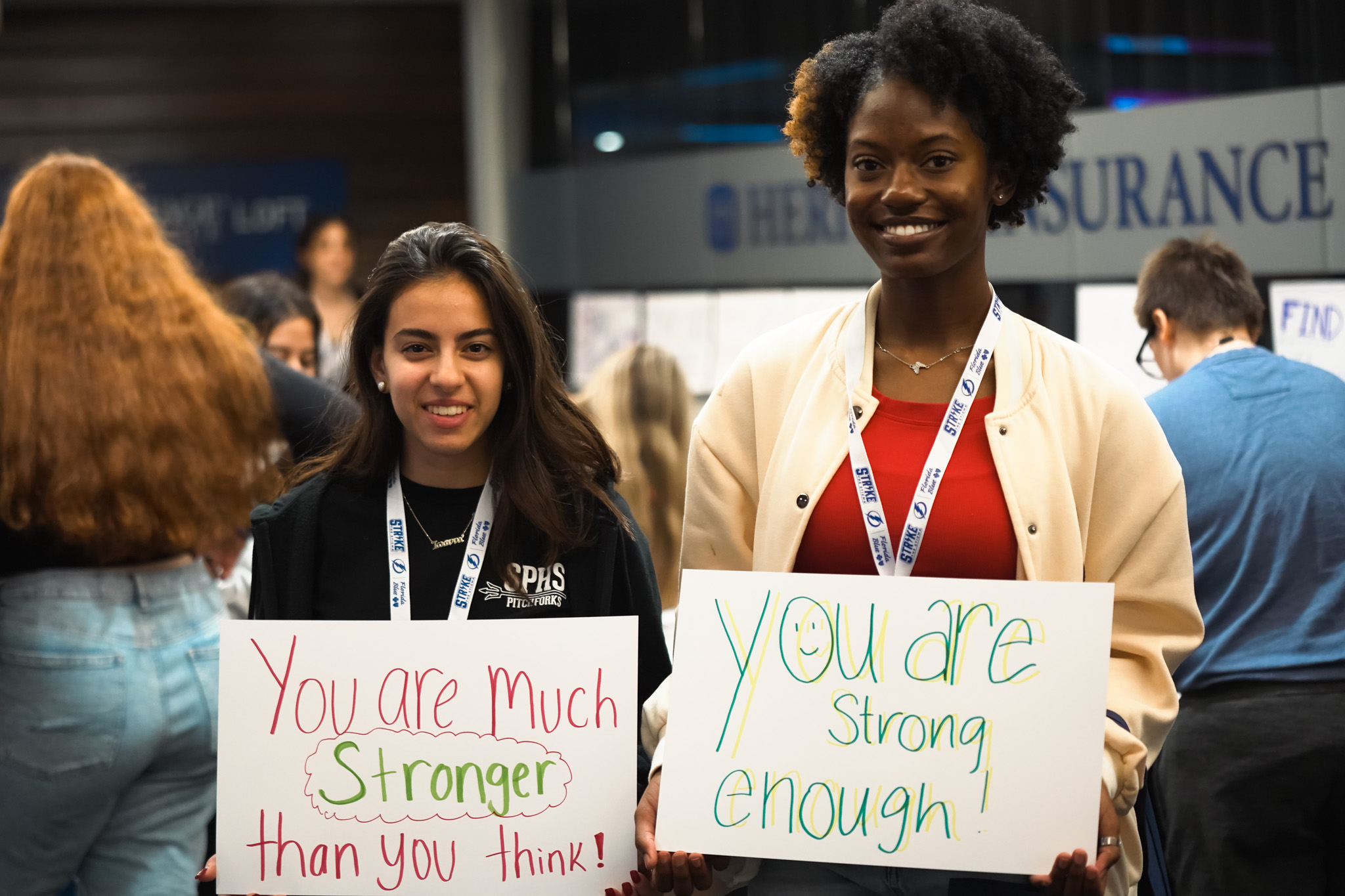
The mental health of our youth is in a state of crisis. Amid COVID-19, a new pandemic was bubbling. Youths are now faced with a trifecta of concerns that are affecting their mental well-being: societal pressure to succeed; a climate of fear (bullying, weapons, and political division); and a digital overload, so great, it is being compared to Big Tobacco of the 1990s. Some states have filed lawsuits against Meta, claiming Instagram and Facebook have fueled the youth mental health crisis.
Tampa Bay Thrives is proud to work alongside the Tampa Bay Lightning and Florida Blue to address the stigma around youth mental health. We helped bring together more than 250 high schoolers across Tampa Bay to participate in a day of mental health talks and activities to help Strike the Stigma. And we were there for the Bolt Run, engaging with runners to help start the conversation around getting help.
Across the nation, the statistics are sobering.
From Mental Health America’s screening data for youth:
- Self-screenings of mental health concerns skyrocketed over 594% from 2019 to 2022
- 54% of all screenings were completed by a resident under the age of 25
- More young people in every age range (including under age 10) are being proactive in understanding their mental health
- In 2022, the top concerns are:
- Loneliness (22%)
- Relationship problems (18%)
- Body image (16%)
- School problems (13%)
From America’s School Mental Health Report Card, Florida, 2022:
- 191,000 (13.2%) Florida youth experienced at least 1 major depressive episode in the past year
- 67% of Florida youth with major depressive episodes in the past year did not receive treatment
From Panorama Climate and Culture Study, 2022
- Only 31% of Hillsborough County students indicated they feel a sense of belonging and that they are valued members of the school community
From a Tampa Bay Thrives study:
- 1 out of 3 Tampa Bay residents are not comfortable discussing mental health with their children
- The main reason residents avoid discussing mental health with their children is because they do not want to upset their children or make them worry unnecessarily
While the data is staggering, there is hope. Won’t you join us as we work to break down the walls around talking about mental health and getting help? Reach out if you would like to volunteer, become an ambassador, or engage with us as a partner. We’d love to have you.
Learn more about our work at Strike the Stigma in the video below:








